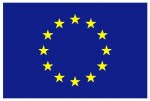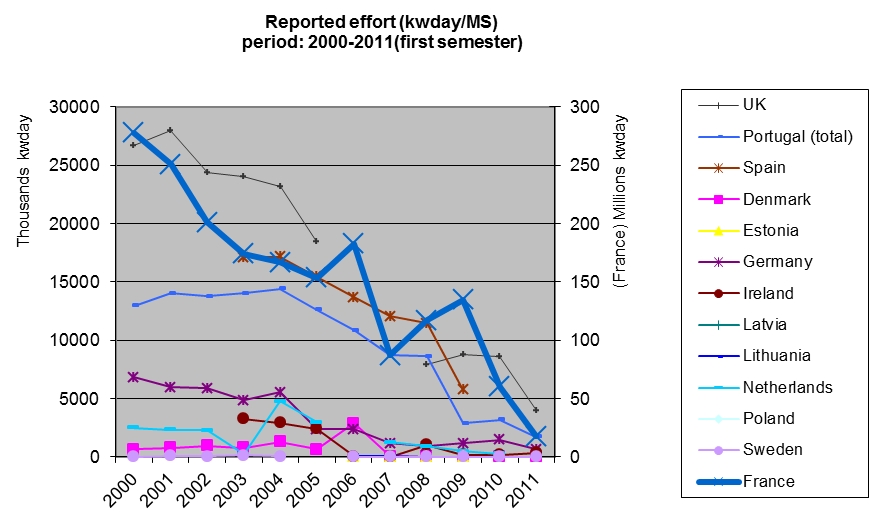European Commission: New measures to regulate Deep-Sea Fisheries
 Press Release
Press Release
European Commission
Brussels, 19 July 2012
Fisheries: the Commission tables new measures for better protection for deep-sea stocks and their habitats
The European Commission has proposed new measures to regulate fishing for deep-sea species in the North-East Atlantic. Deep sea ecosystems and the species that live in them are particularly vulnerable to human activities. The new regulation aims to ensure that deep-sea species are fished sustainably, that unwanted by-catches decrease, that the impact on fragile deep-sea habitats decreases and that there is more data on the biology of these species.
To this end the Commission proposes a reinforced licensing system and a gradual phase-out of those fishing gears that specifically target deep sea species in a less sustainable manner, namely bottom trawls and bottom-set gillnets. The Commission also envisages specific requirements for the collection of data from deep sea fishing activities. The necessary adjustments to implement these measures may benefit from financial support under EU Funds.
Deep sea stocks can be taken as by-catch in many fisheries. However, there are also fishing vessels that specifically target these species. These are the vessels that are most dependent on these resources and they will have a future only if their activity is managed to be sustainable. This implies first the need to put in place a gradual switch to fishing techniques that are more selective, with less impact on the deep sea habitats.
The Commission proposes that licenses for fishing deep sea species with bottom trawls and bottom-set gillnets be gradually phased out because it causes more harm to vulnerable deep-sea ecosystems than other fishing methods, and involves high levels of unwanted by-catches (20 to 40 per cent in weight, or more). Other commercial fisheries using bottom trawls will not be affected, because the proposed measures only concern fisheries that target deep-sea fish.
Fishermen already cooperate with scientists to know more about largely unknown deep-sea ecosystems. To find ways to test less harmful fishing gear and switch to fishing techniques and strategies that have less impact on those fragile ecosystems, the Commission has decided to finance a study on this topic, in cooperation with companies involved in deep-sea activities.
Background
Deep-sea species are caught in deep waters in the Atlantic beyond the main fishing grounds on the continental shelves, in depths up to 4000 metres. Their habitats and ecosystems are largely unknown, but we know that they are home to coral reefs as much as 8,500 years old and ancient species that are still little explored. This is a fragile environment that, once damaged, is unlikely to recover. Highly vulnerable to fishing, deep-sea fish stocks are quick to collapse and slow to recover because they reproduce at low rates.
Black scabbard fish and red sea bream are high value deep-sea species, while others as blue ling and grenadiers are of medium value to fishermen. Some deep-sea stocks are seriously depleated, including the orange roughy and deep-water sharks. Other stocks can be fished (blue ling, roundnose grenadier) but this need to be done in an environmentally sound way (for instance avoiding unnecessary by-catches).
Deep-sea fisheries in the North-East Atlantic are pursued in EU waters, including the outermost regions of Portugal and Spain, and in international waters governed by conservation measures adopted within the North East Atlantic Fisheries Commission (NEAFC), in which the EU participates along with the other countries fishing in the area.
Deep sea fisheries account for about 1% of fish landed from the North-East Atlantic, but some local fishing communities depend to a certain extent on deep-sea fisheries. The catches – and related jobs – have been declining for years, due to depleted stocks.
In the past, this fishery went on largely unregulated, and this clearly impacted negatively on the stocks concerned. In 2003, the EU started imposing limits on the amount of fish that can be taken, on the numbers of vessels authorised, and on the days they can spend at sea (i.e. fishing effort) to fish for those species.
The chart shows how fishing effort has declined during the last years.
Decline of fishing effort since 2000 according to the information reported by the relevant EU Member States

Source: The European Commission
